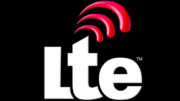In a 6-3 decision, the Supreme Court of the United States (SCOTUS) has come down hard on Aereo’s ambitions, ruling in favor of broadcasters instead. This could be the end of Aereo, plain and simple.
According the court’s decision (full text here from their site) Aereo’s unique method of gathering and transmitting signals does not make them exempt from federal copyright law. According to the court, what Aereo is doing is actually broadcasting, and what’s more they’re doing it without consent. The major broadcast networks banded together to sue Aereo, and while West Coast courts sided with them, East Coast courts saw it differently. This meant the case was headed to the country’s highest court, who decisively struck down Aereo’s ambitions.
Aereo had argued before that it was essentially running a service where thousands of placeshifting devices were being used, each for one person, and due to an FCC loophole that allows placeshifting Aereo was ruled to be legal. Now the court has struck down that argument, not killing placeshifting (so your GenieGO is still legal) but saying that what Aereo was doing was actually broadcasting, because it fails the “sniff test,” meaning that if it “smells enough” like broadcasting, it must be broadcasting. In other words, Aereo’s technological distinctions weren’t enough to save it.
A couple things.
We expect that broadcasters will ask courts to issue a cease-and-desist order immediately against Aereo, demanding that they stop violating copyright and dismantle their service. There’s not a lot of room for appeal here, that’s what a Supreme Court decision means. Aereo has never really expressed any sort of “Plan B” here, and this is very likely the end of the company.
However… this is really a clear illustration of how broken the FCC has become. Putting aside their recent fanatical determination to destroy the internet, they had it completely within their power to fix this at any time and keep the courts out of it. They recognized there was a loophole and all they had to do was close it. Sure it would have taken time but fixing this at the regulatory level was the right place to fix it and the FCC dropped the ball plain and simple.
What’s Aereo’s future? We’re betting that after today, they don’t have one.





